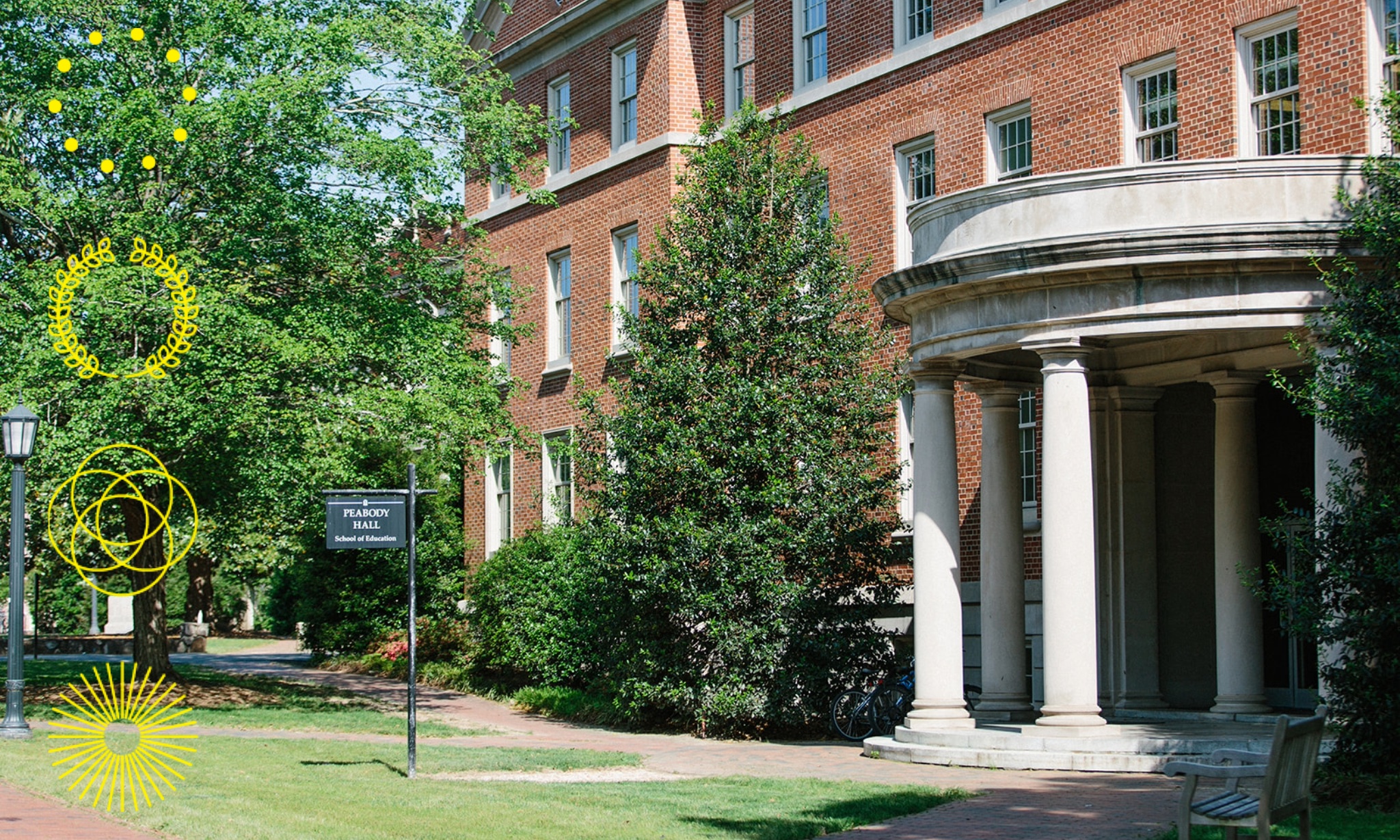During its May 2024 graduation ceremony, the UNC School of Education will celebrate the inaugural cohorts of the Fellows for Inclusive Excellence and Helping Heels programs — which, combined, aim to improve educational outcomes and access to mental health resources in rural North Carolina schools.
These programs also work to foster strong partnerships between educator preparation programs and rural districts while creating more equitable rural school communities through education and mental health services.
“In just their first year, the Fellows for Inclusive Excellence and Helping Heels programs have provided incredible impact in North Carolina’s rural high-needs schools,” said Fouad Abd-El-Khalick, Ph.D., dean and Alumni Distinguished Professor. “These programs underscore our commitment to rural, Title 1 schools in neighboring counties.”
Introduced in March 2023, the Fellows for Inclusive Excellence is made possible by a $3 million commitment over four years and was established to provide financial support for current School of Education students in the Master of Arts in Teaching and School Counseling programs as they intern and learn from experienced, effective teachers and counselors in Chatham and Person counties’ Title 1 schools.
Upon graduation, these teachers and school counselors and their classmates have the opportunity to join schools in those districts as new professionals. If they choose to become Fellows after graduation, they receive graduated bonuses over the next three years as they opt to remain at their school.
“While we know that rural communities have a wealth of resources in their people and relationships, that doesn’t always translate to a wealth of resources for funding schools,” said Amy Richarson, director of Carolina Community Academy and PK-12 Partnerships. “The Fellows for Inclusive Excellence bolsters financial incentives and make it possible for rural communities and students to benefit from Carolina’s excellent graduates.”
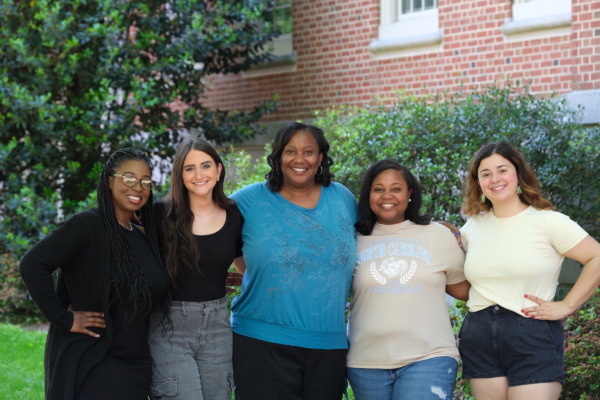
Helping Heels — Expanding Access to Care and Enhancing Opportunities for Rural Schools in North Carolina — is funded by a $2.27 million grant from the U.S. Department of Education and places school counselors-in-training in rural high-needs schools. The project aims to encourage graduates of the School Counseling program to seek employment in these schools or similar settings, ultimately helping to address the mental health needs of rural communities.
Dana Griffin, Ph.D., the project’s principal investigator and an associate professor in the School Counseling program, commended this year’s cohort for their dedication. Despite long-distance travel obligations for internship placements, Griffin emphasized the students consistently demonstrated a commitment to promoting inclusive practices and addressing the mental health needs of rural children in North Carolina.
“I’m most proud that each student demonstrated excellent work at their school sites, which positively reflects on the UNC School of Education and the School Counseling program,” Griffin said.
Over five years, Griffin and co-PIs Dorothy Espelage, Ph.D.; Lewis Hatcher, Ph.D.; and Robert Martinez, Ph.D., will support 33 counselors-in-training through coursework and yearlong internships. Data collected throughout the project will assess trainees’ clinical skills, shape professional development for site supervisors, and inform School Counseling program curriculum updates.
“We hope that more students will choose to work in rural school settings, bringing their knowledge and resources to the school communities that need it most,” Griffin said.
“Over the last year, these graduating student teachers and school counselors-in-training went into high-needs schools and helped learners to excel academically while fostering a comprehensive, whole-child approach to teaching and school counseling,” Abd-El-Khalick said. “I know they will continue this important work throughout their careers.”
Meet a few students from the Fellows and Helping Heels programs and discover how these initiatives are shaping their futures:
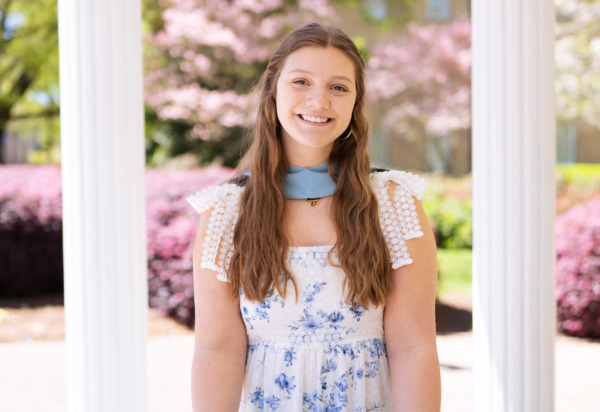
Lauren Lloyd – Fellows for Inclusive Excellence
Student teacher in Person County Schools
“I entered my placement in a rural North Carolina school having no prior experience in a rural community but bringing my lived experience of attending Title 1 schools through my K-12 education. I have been exposed to a variety of students from diverse cultures, communities, and backgrounds. I believe this has allowed me to expand my perspectives and is preparing me for the diverse learners I will experience in my future classroom. This exposure allows me to be a better educator as I can bring these new perspectives into my teaching and support my high-need students.
“As I graduate, I plan to build strong relationships with my students from the beginning. Having an inclusive environment that promotes academic success for all students starts by building rapport and implementing a classroom community to maintain that students can learn to trust you and your efforts toward success in their education.
“I also plan to work diligently to understand each student’s unique backgrounds and cultures. You may not have lived the same experiences or lives as them, but being empathetic toward students can help promote a positive learning environment. As an educator working in rural communities, it is important to understand these strategies and implement them to ensure students are taught in an environment that allows them to learn and they learn to love learning!”
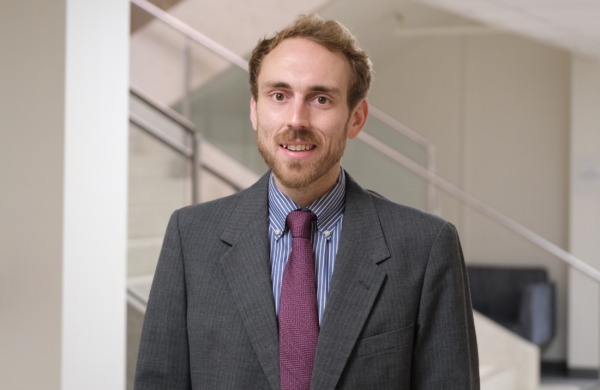
Cole Stanley – Fellows for Inclusive Excellence
School counselor-in-training in Person County Schools
“Through my participation in the Fellows for Inclusive Excellence program, I’ve gained invaluable training and exposure that directly equips me to make an immediate impact in high-needs schools. At my school site over the course of the year, I worked my supervisor to conduct group counseling sessions, create sensory-friendly spaces for students on the autism spectrum, and bring in resources that exposed many students to ambitions of college attendance for the first time.
“The support I received from the Fellowship allowed me to fully immerse myself in the academic and practical learning necessary to become a highly effective school counselor. With these skills, I am confident in my capacity to provide comprehensive support and services to students in rural North Carolina, such as those in Person County Schools.”
“Upon graduating, I plan to establish a peer mentoring program that pairs middle school students with college students from their own rural communities and similar cultural backgrounds. Second, I will develop a comprehensive program to support students with autism spectrum disorder (ASD). This will include creating a counseling group utilizing Theraplay techniques where students with ASD can connect, learn with and from one another, and develop self-advocacy skills. Finally, I will lead efforts to establish a family engagement program that empowers parents and guardians from diverse backgrounds to actively participate in their children’s education.
“Through these targeted initiatives, I aim to create a more inclusive and supportive environment at my school site, where every student feels valued, supported, and empowered to achieve their full potential academically and personally.”
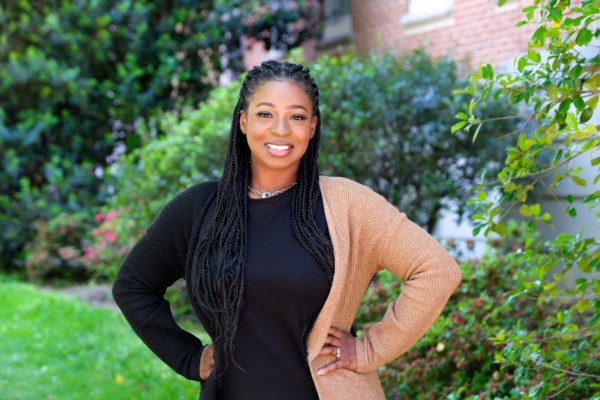
Jaclyn Lankford – Helping Heels
School counselor-in-training in Person County Schools
“I had the opportunity to work with a bright and determined student with a disability, during my internship as a school counselor. My student faced unique challenges. As their counselor, I was determined to provide them with the support and resources needed to succeed.
“The Helping Heels program played a crucial role in addressing their needs. Through this program, I collaborated with other education professionals, and we established a strong rapport, helping me to understand the student’s experiences and challenges more deeply. This experience has profoundly impacted me as a future school counselor. Witnessing the students’ growth and success reinforced my belief in the power of inclusive education and the need for specialized programs like Helping Heels.
“My experience during my internship showcased the transformative impact of inclusive support on both the student and the counselor. Witnessing that student’s growth and success reaffirmed my commitment to advocating for the needs of students with disabilities and providing them with the necessary tools and resources to thrive. The Helping Heels program empowered my students and also inspired me to continue working towards creating inclusive and supportive environments for all students.”
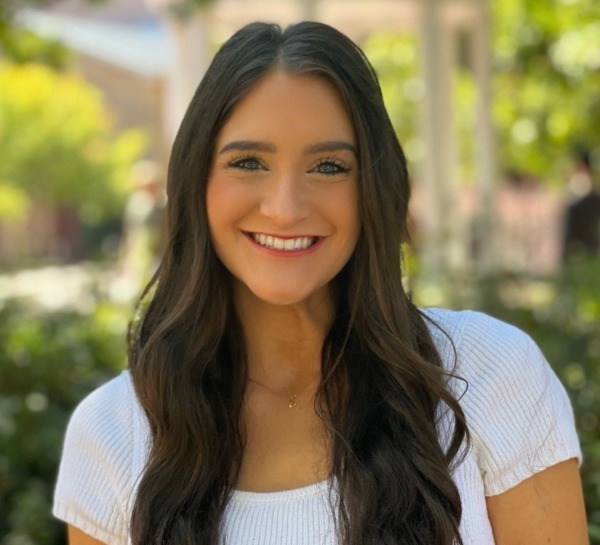
Victoria Plyler – Helping Heels
Student counselor-in-training in Granville County Schools
“Being part of the Helping Heels program has truly allowed me to understand more about not only the mental health needs but also how inequitable systems impact rural students every day and how resilient and strong students in rural communities are even when facing adversities. I have learned more about how imperative it is that I utilize my roles as a school leader, collaborator, advocate, and change agent to get all students the resources they need and truly listen to student needs and voices.
“My role at my site and having this opportunity through Helping Heels has especially impacted students because I have been able to be an extra set of hands in the counseling department and provide mental health and social-emotional services. Working with my supervisor, I was able to use my time as an intern to implement evidence-based small-group counseling interventions and classroom guidance lessons for students based on student data and needs.
“My participation in Helping Heels has influenced my understanding of mental health disparities in low-income rural communities because I have seen first-hand how inequities in mental health resources and supports, particularly at a school, can prevent students of all backgrounds from receiving the social-emotional, personal, and college and career support they need.
“I also grew up in a rural area and in rural schools and similarly observed inequities in access to mental health resources in these areas, so I have a passion for giving back and acting as an advocate in a rural community and rural school environment that is similar to the one I grew up in and that I know needs more options for and access to mental health services.”
